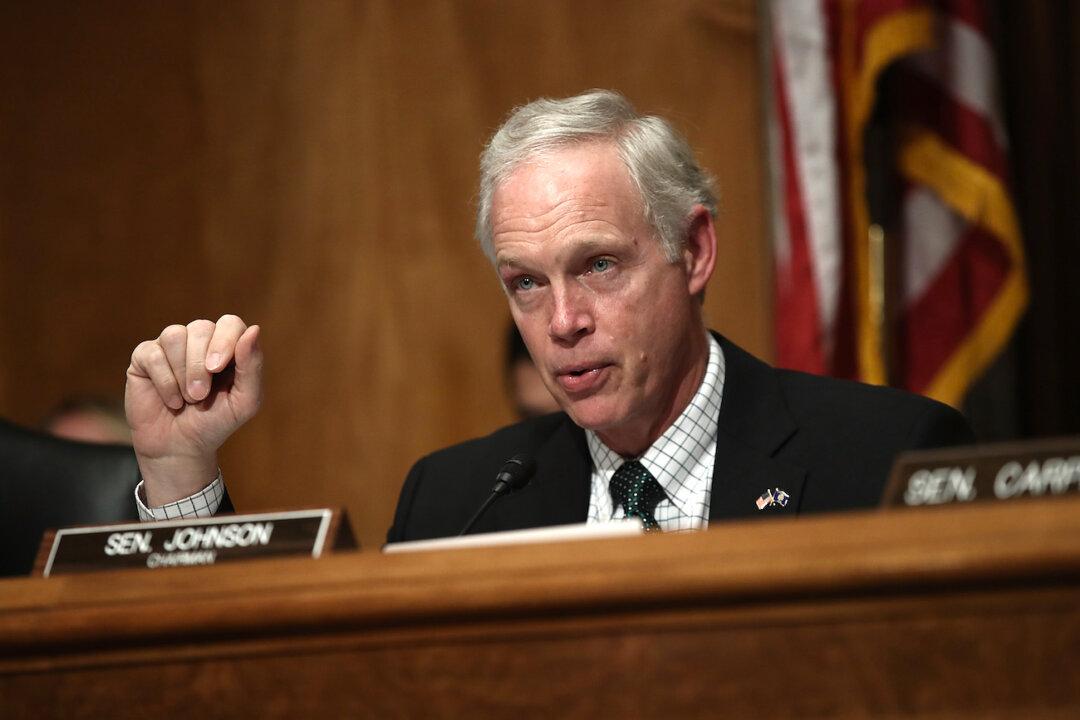Sen. Ron Johnson (R-Wis.) says the next round of stimulus checks should focus on those who are most in need, and be subject to more stringent eligibility requirements, to minimize the debt burden.
In a series of tweets, the Wisconsin Republican argued that targeting the aid more narrowly would avoid encumbering future generations by more borrowing.





